Abstract
1. The onset of the secretion of acid from the stomach of rats during insulin-induced hypoglycaemia has been found to correspond to a mean plasma glucose concentration of 72 mg/100 ml. (equivalent to a blood glucose concentration of 44 mg/100 ml.).
2. Infusions of the non-metabolizable sugar, 3-O-methylglucose, into rats with denervated adrenal glands caused a large and sustained rise in the gastric acid output. This gastric acid secretion could be prevented by prior vagotomy or stopped, when previously established, by cutting the vagi or by the administration of glucose.
3. A consistent relationship was demonstrated between the plasma concentration of glucose and the total concentration of glucoses (glucose plus 3-O-methylglucose) in the plasma at the onset of gastric acid secretion during the infusion of 3-O-methylglucose into these rats. The theoretical basis for this relationship is discussed.
4. 3-O-methylglucose did not cause the release of gastric acid when infused into rats with intact sympathetic nervous systems owing to the effects of the secretion of adrenaline provoked by this agent.
5. The qualitative and quantitative similarities between the factors governing both the secretion of gastric acid and the release of adrenaline in the absence of a sufficiency of metabolizable glucose are discussed. It is suggested that the reactions of both these systems under such circumstances are determined by chemoreceptors which possess identical characteristics.
Full text
PDF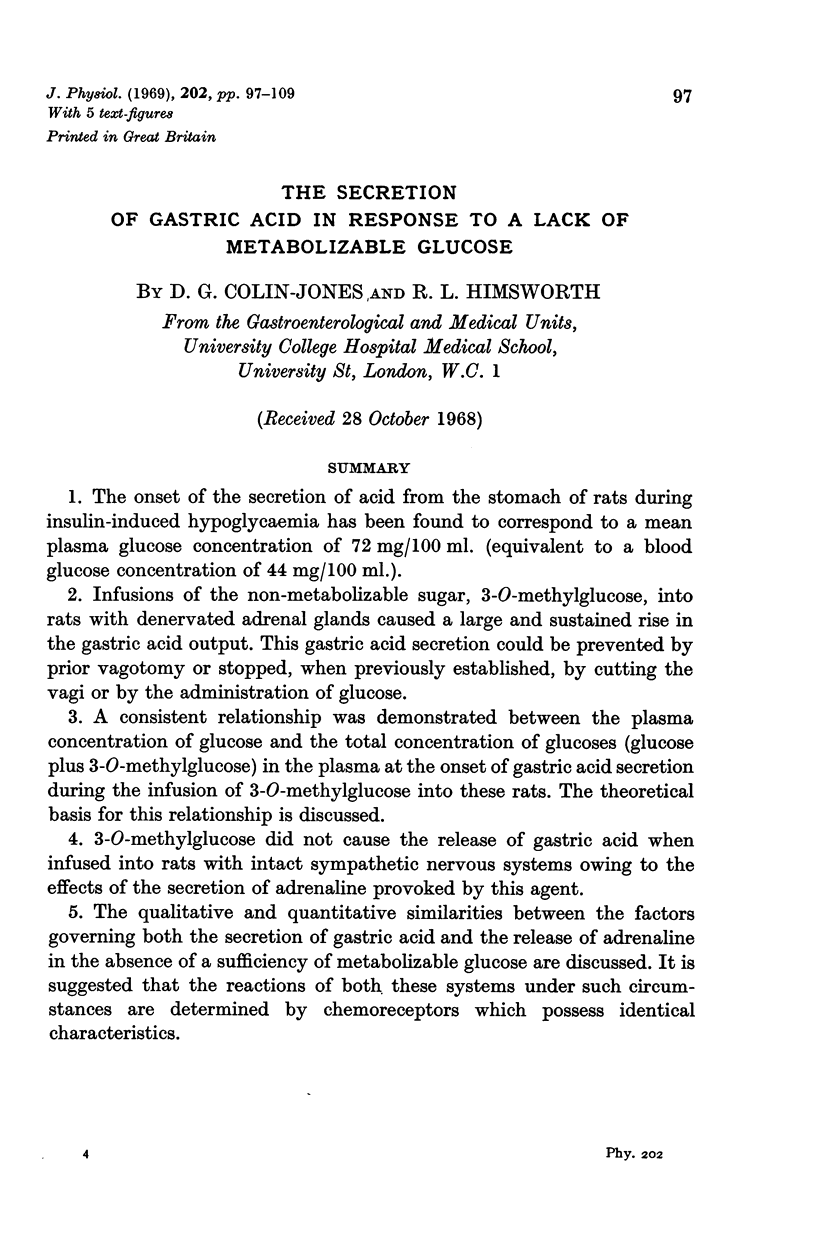
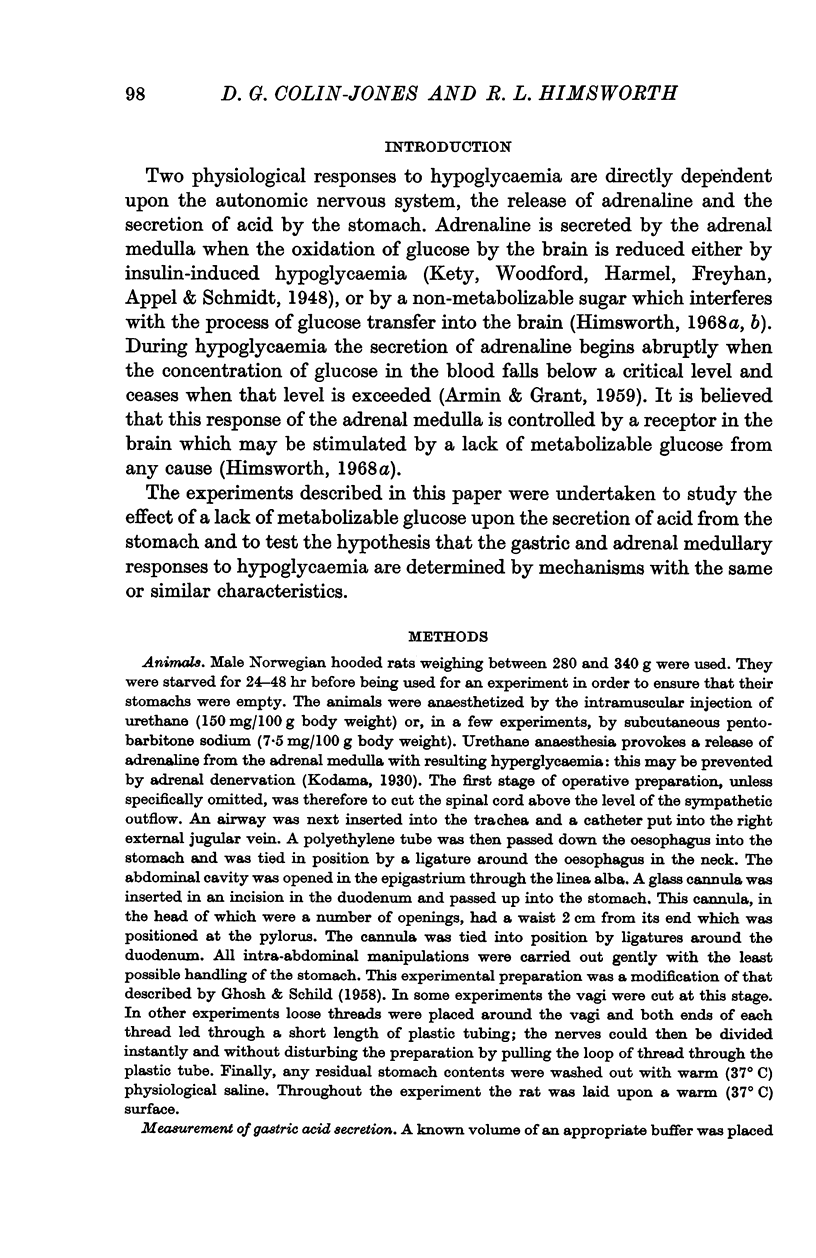
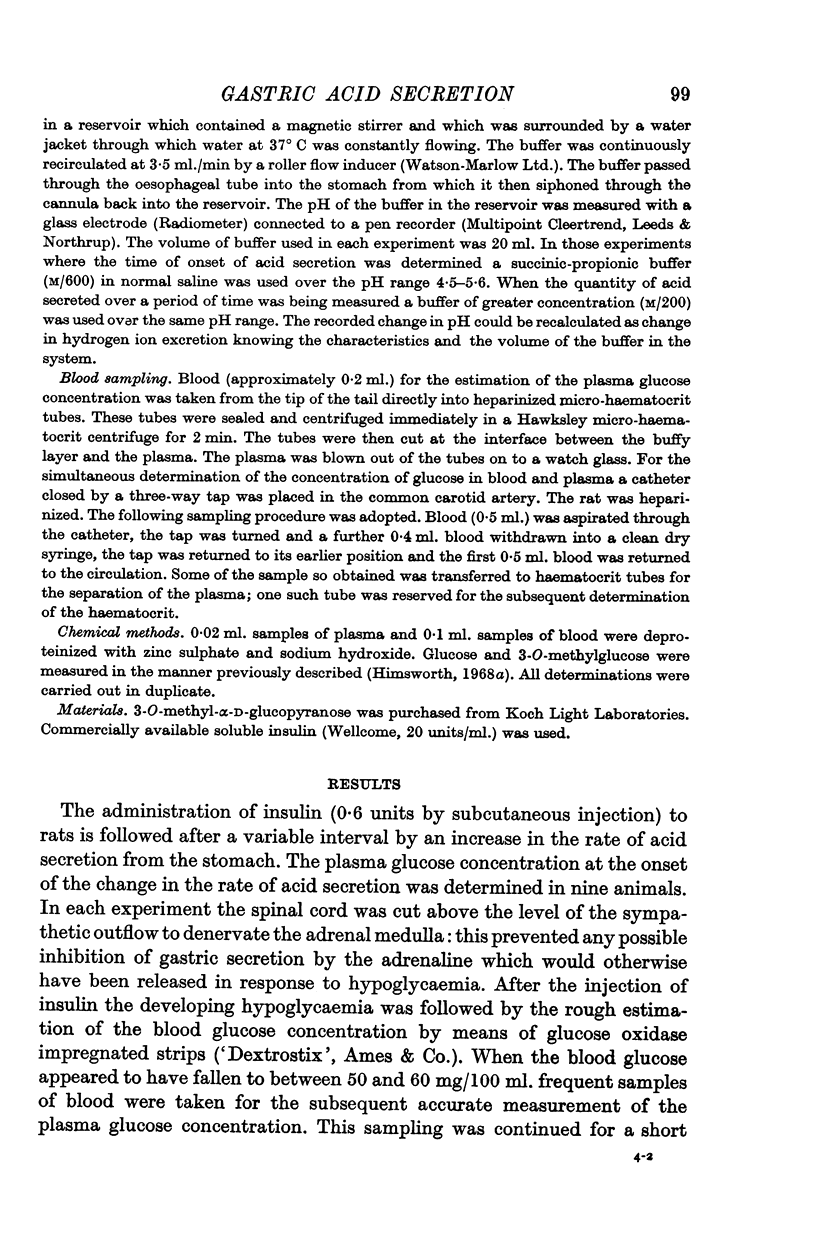
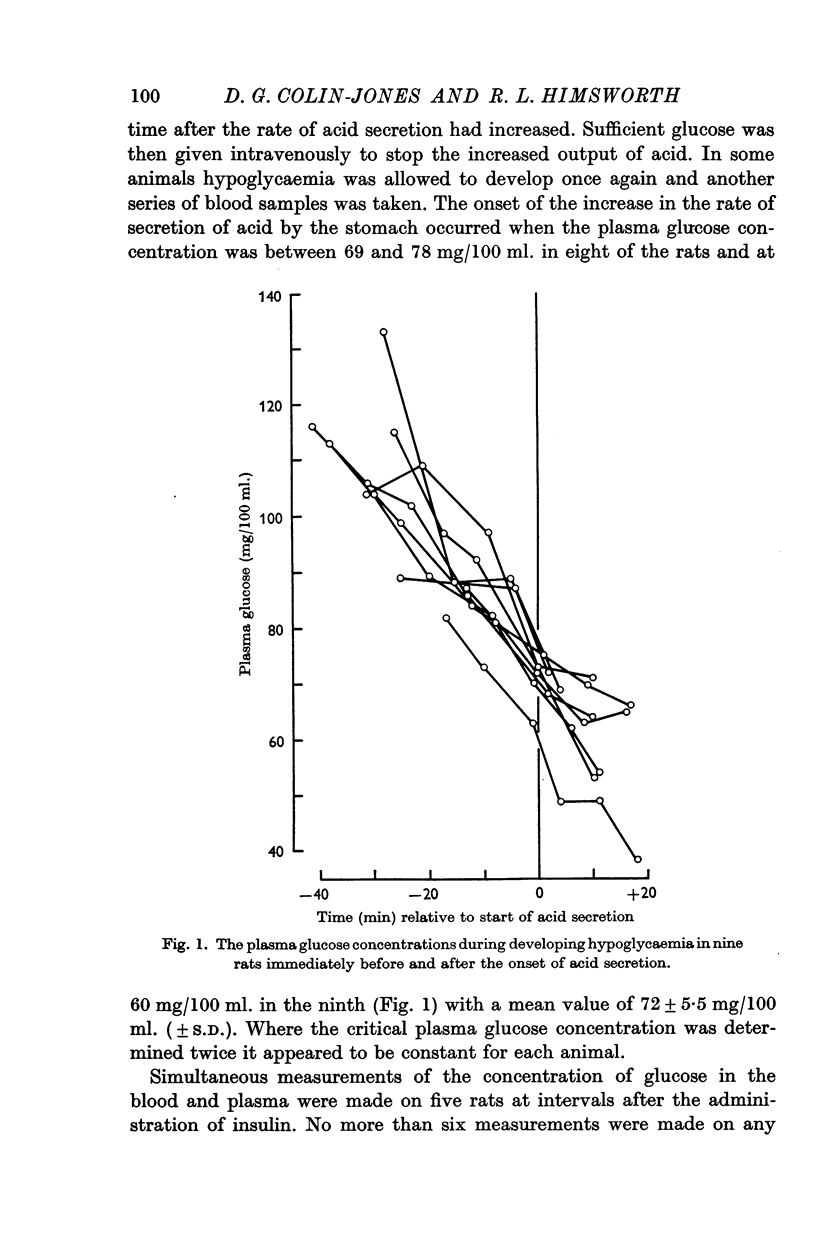
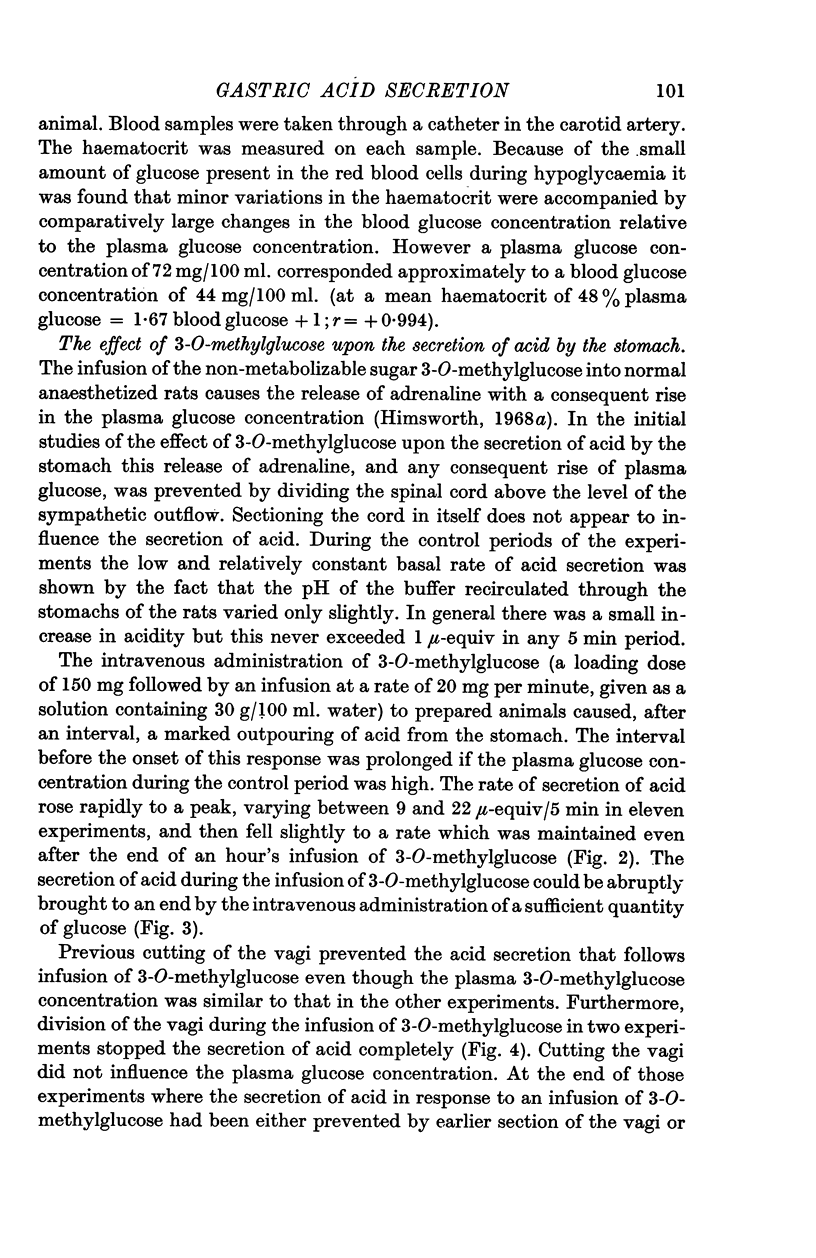
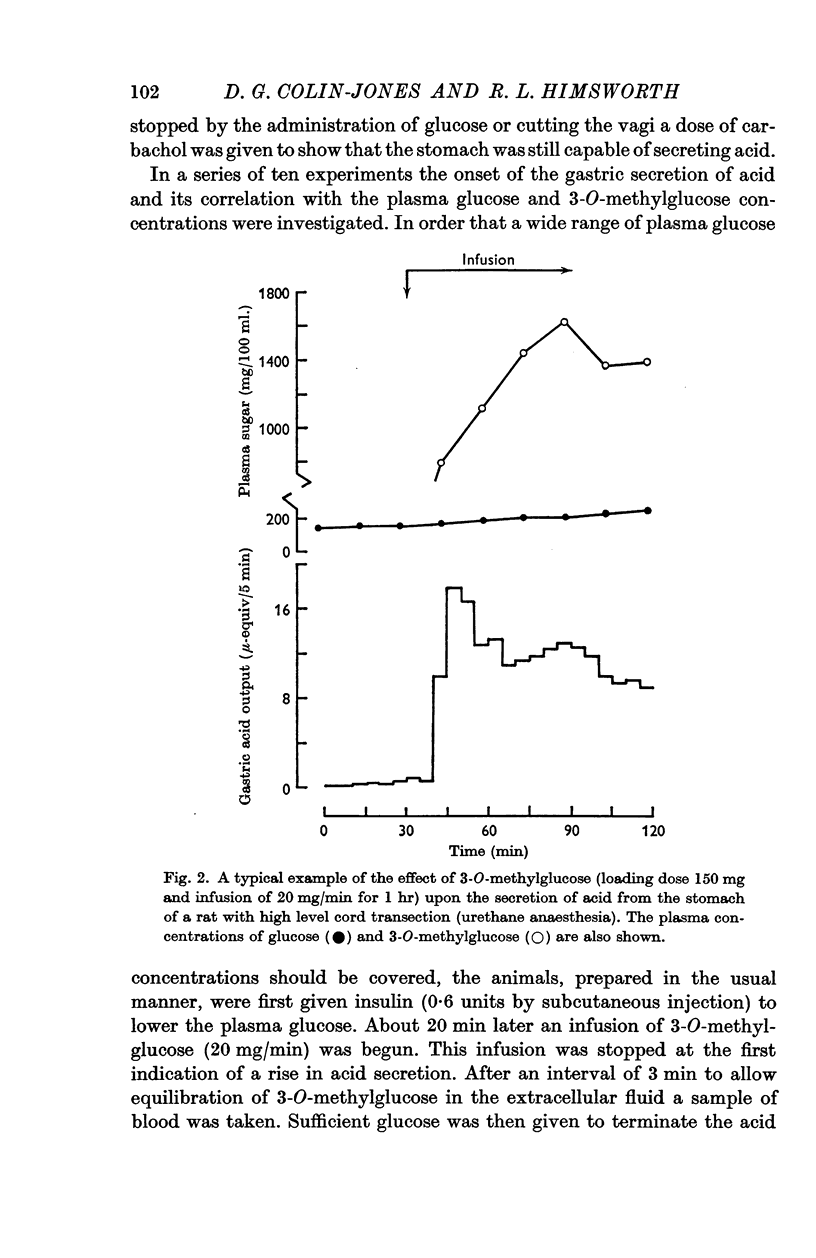
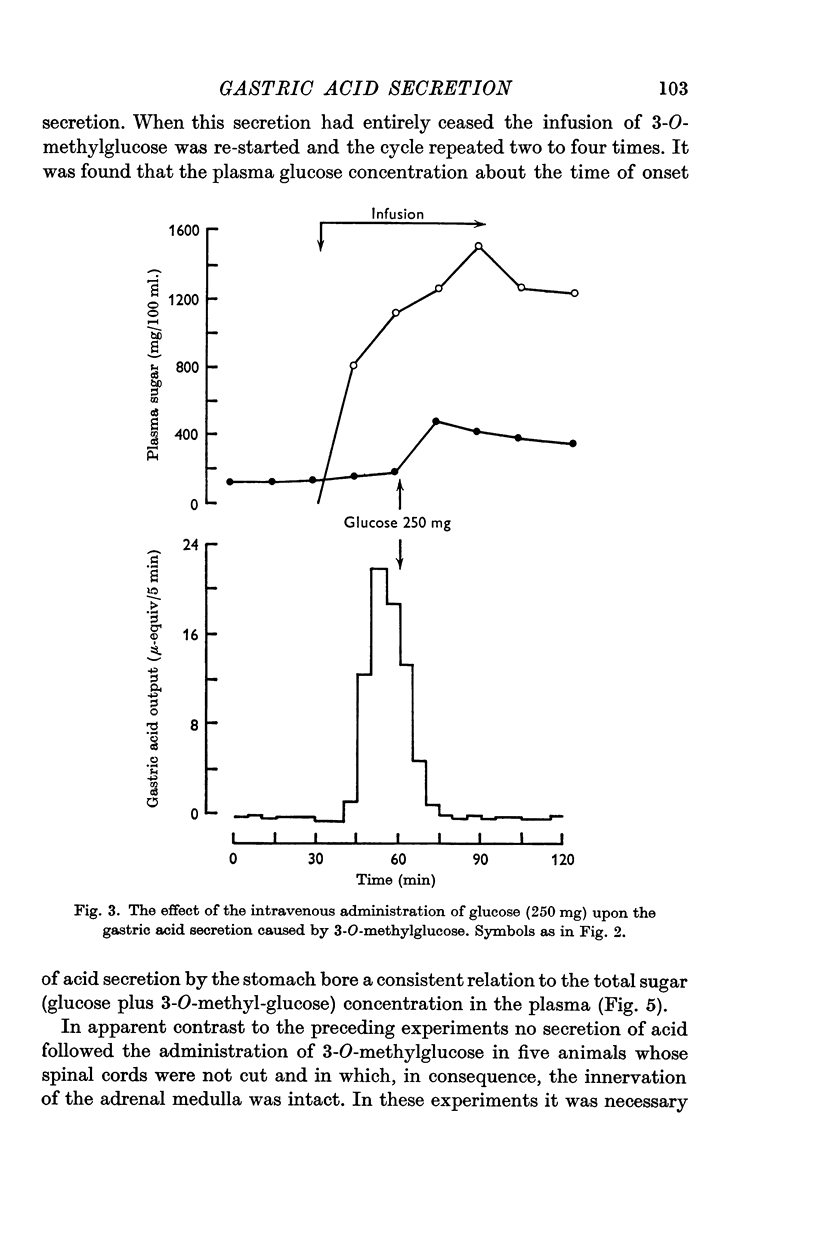
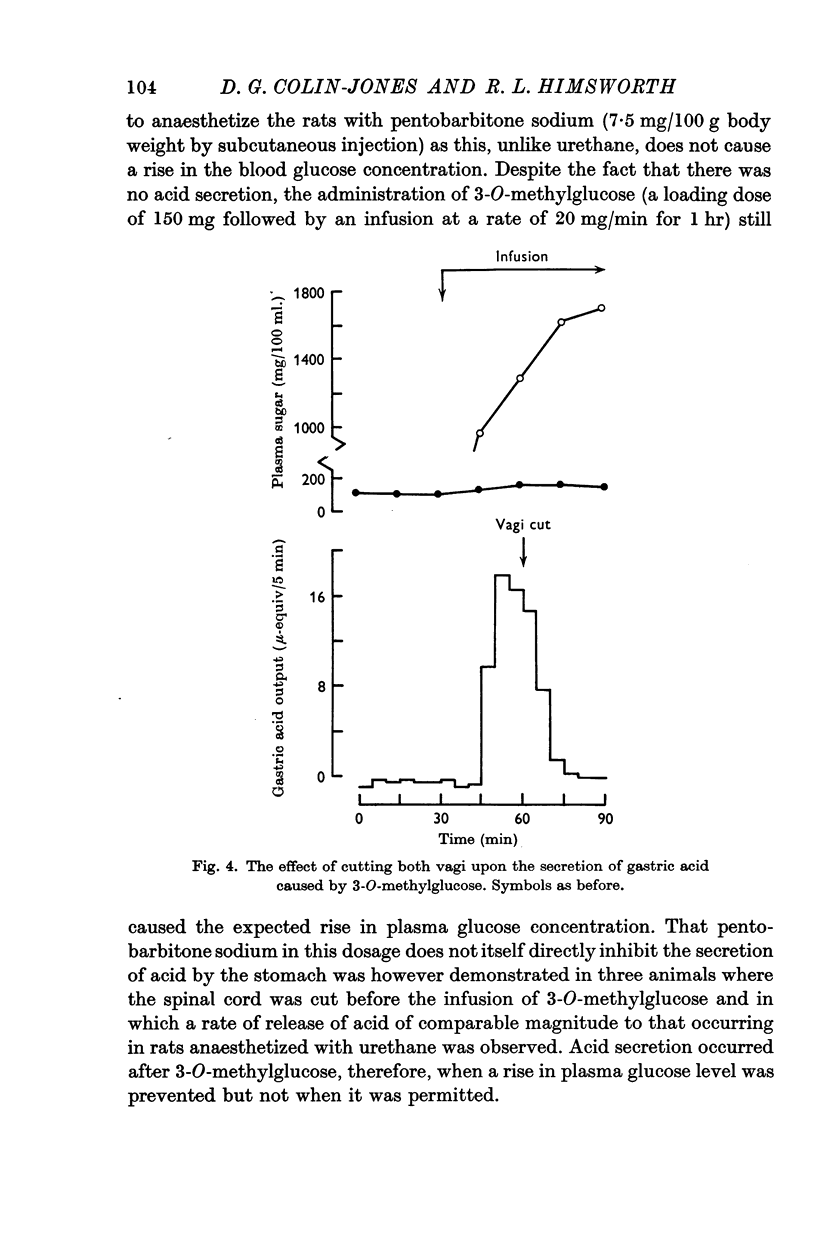
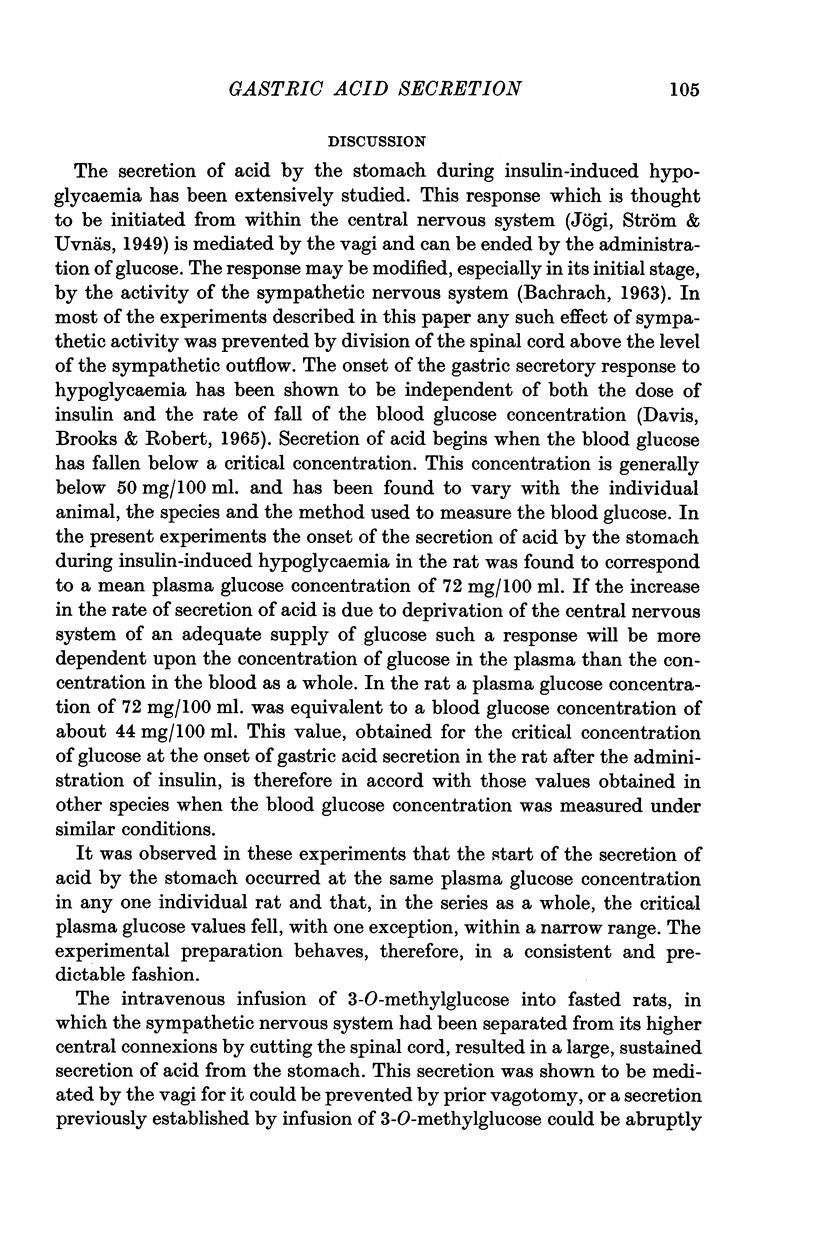
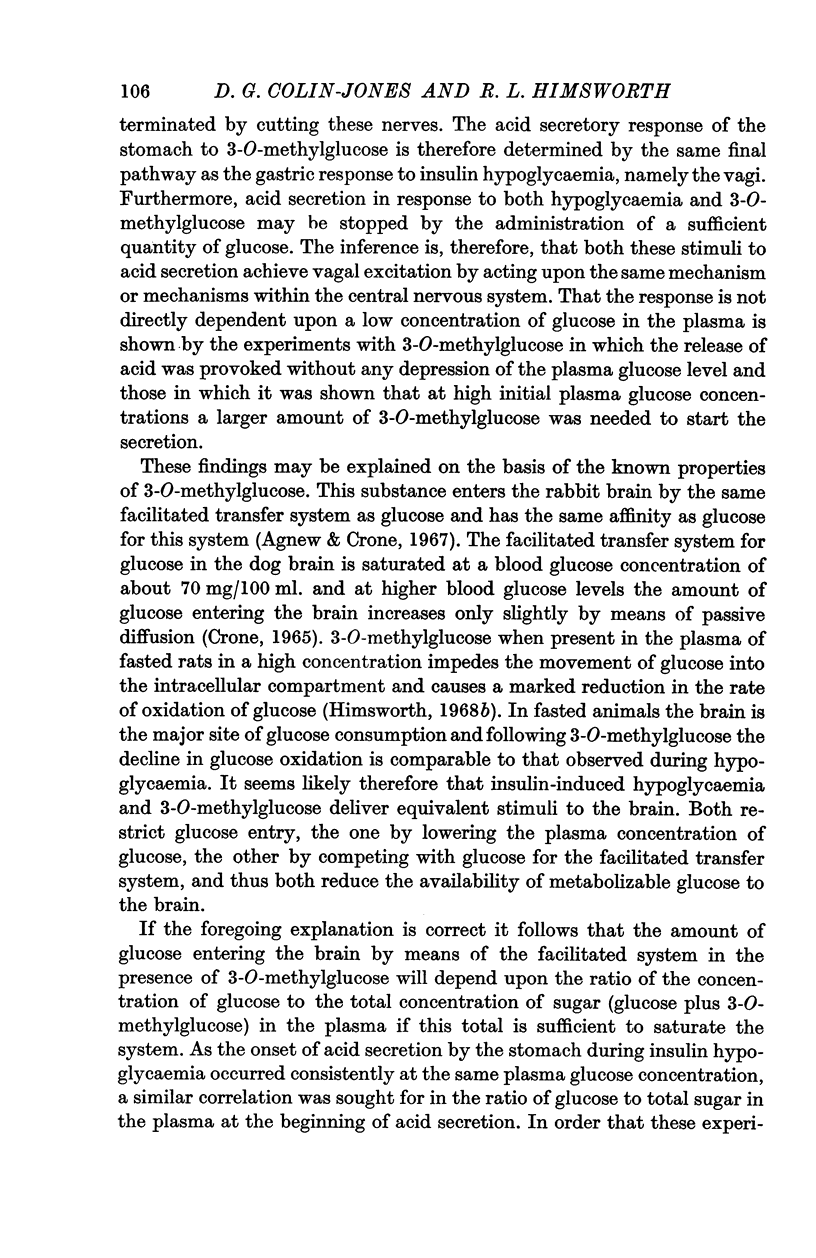
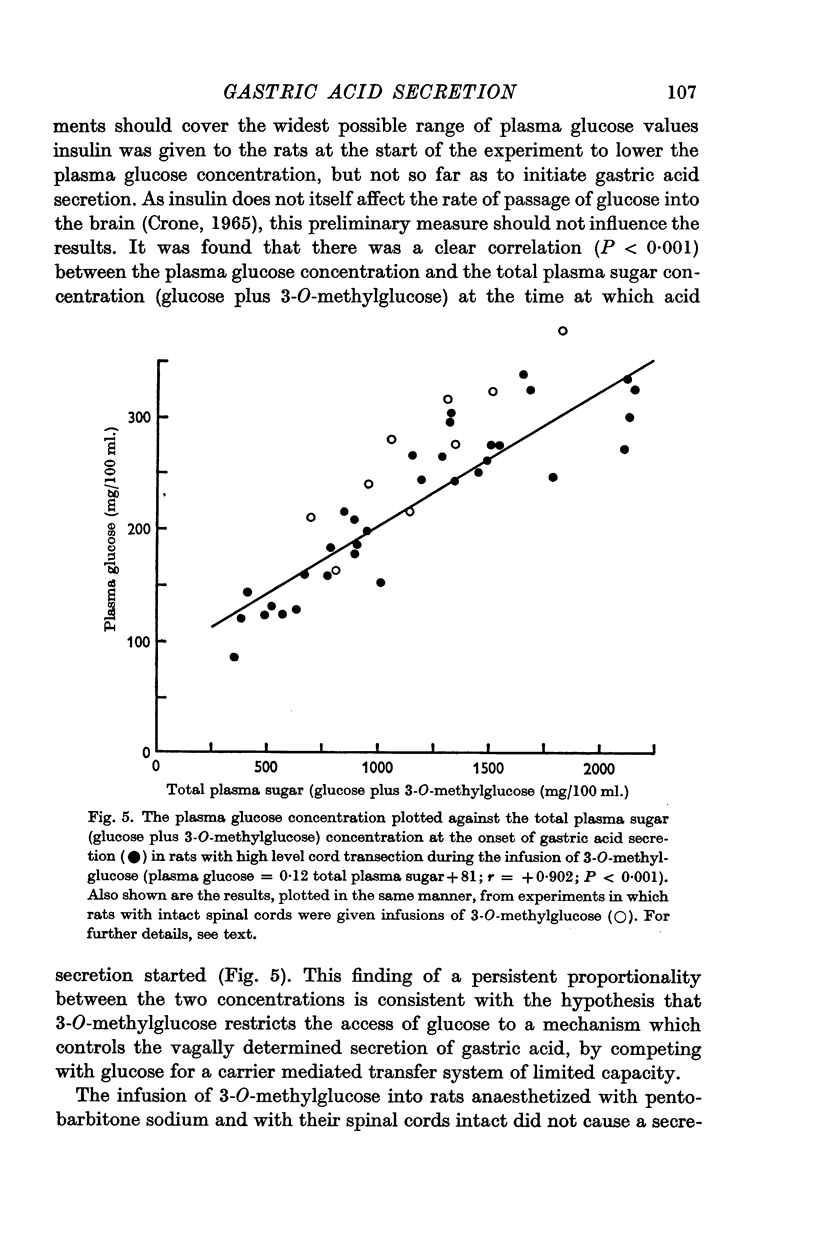
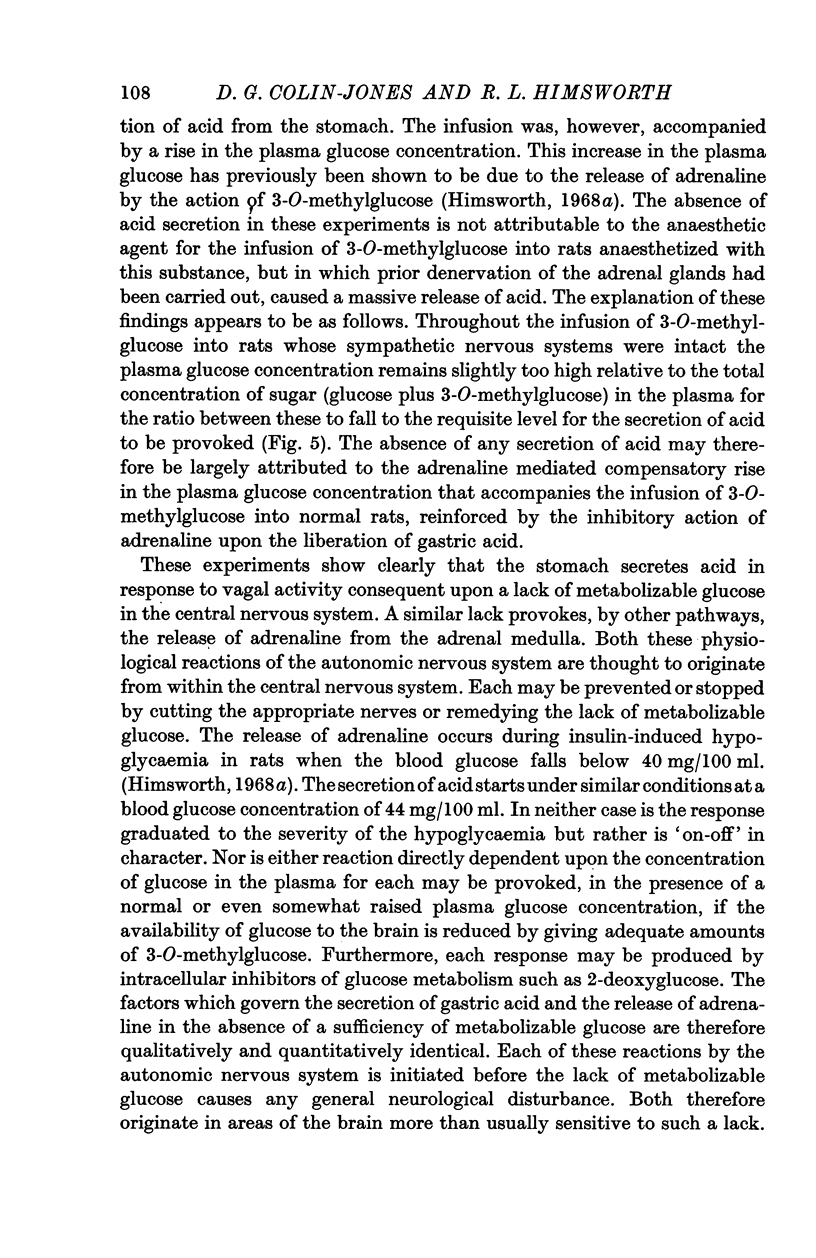
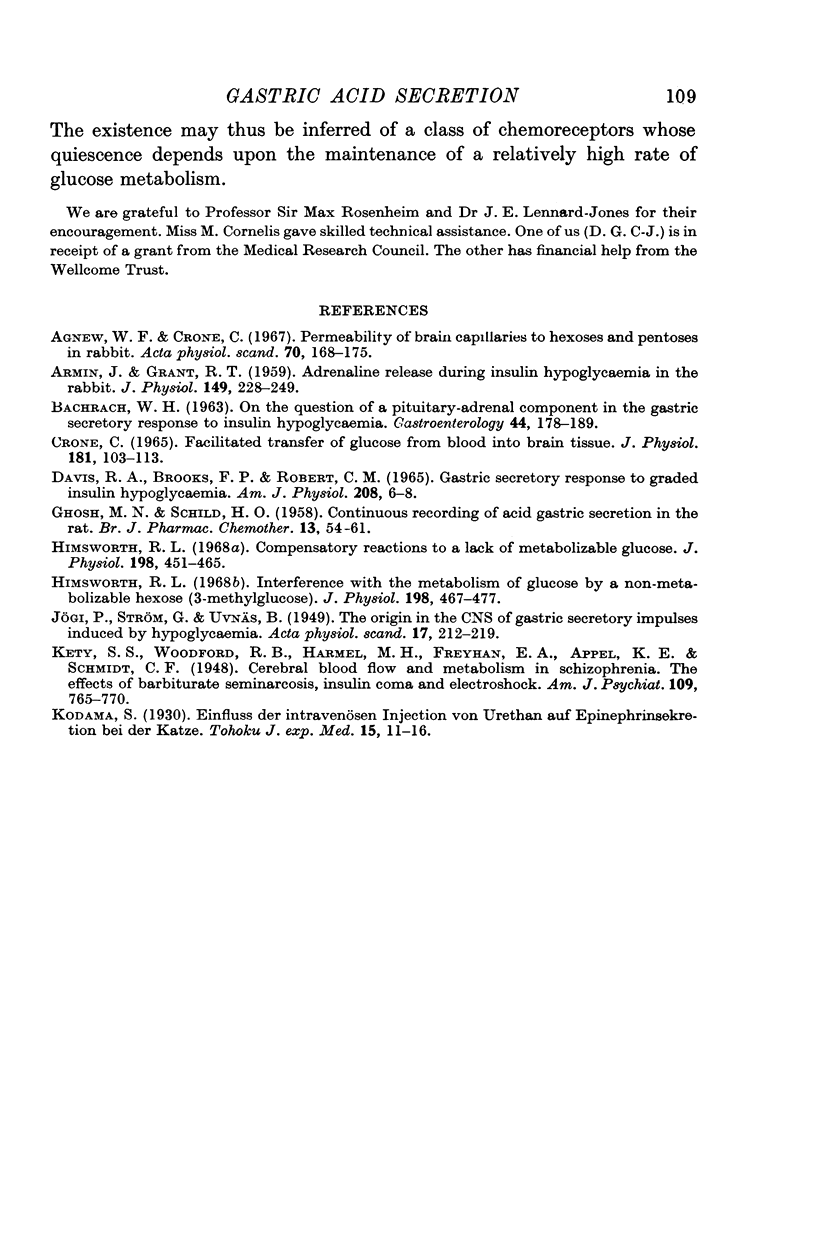
Selected References
These references are in PubMed. This may not be the complete list of references from this article.
- ARMIN J., GRANT R. T. Adrenaline release during insulin hypoglycaemia in the rabbit. J Physiol. 1959 Dec;149:228–249. doi: 10.1113/jphysiol.1959.sp006337. [DOI] [PMC free article] [PubMed] [Google Scholar]
- BACHRACH W. H. On the question of a pituitary-adrenal component in the gastric secretory response to insulin hypoglycemia. Gastroenterology. 1963 Feb;44:178–189. [PubMed] [Google Scholar]
- Crone C. Facilitated transfer of glucose from blood into brain tissue. J Physiol. 1965 Nov;181(1):103–113. doi: 10.1113/jphysiol.1965.sp007748. [DOI] [PMC free article] [PubMed] [Google Scholar]
- DAVIS R. A., BROOKS F. P., ROBERT C. M., Jr GASTRIC SECRETORY RESPONSE TO GRADED INSULIN HYPOGLYCEMIA. Am J Physiol. 1965 Jan;208:6–8. doi: 10.1152/ajplegacy.1965.208.1.6. [DOI] [PubMed] [Google Scholar]
- GHOSH M. N., SCHILD H. O. Continuous recording of acid gastric secretion in the rat. Br J Pharmacol Chemother. 1958 Mar;13(1):54–61. doi: 10.1111/j.1476-5381.1958.tb00190.x. [DOI] [PMC free article] [PubMed] [Google Scholar]
- Himsworth R. L. Compensatory reactions to a lack of metabolizable glucose. J Physiol. 1968 Sep;198(2):451–465. doi: 10.1113/jphysiol.1968.sp008616. [DOI] [PMC free article] [PubMed] [Google Scholar]
- Himsworth R. L. Interference with the metabolism of glucose by a non-metabolizable hexose (3-methylglucose). J Physiol. 1968 Sep;198(2):467–477. doi: 10.1113/jphysiol.1968.sp008617. [DOI] [PMC free article] [PubMed] [Google Scholar]


